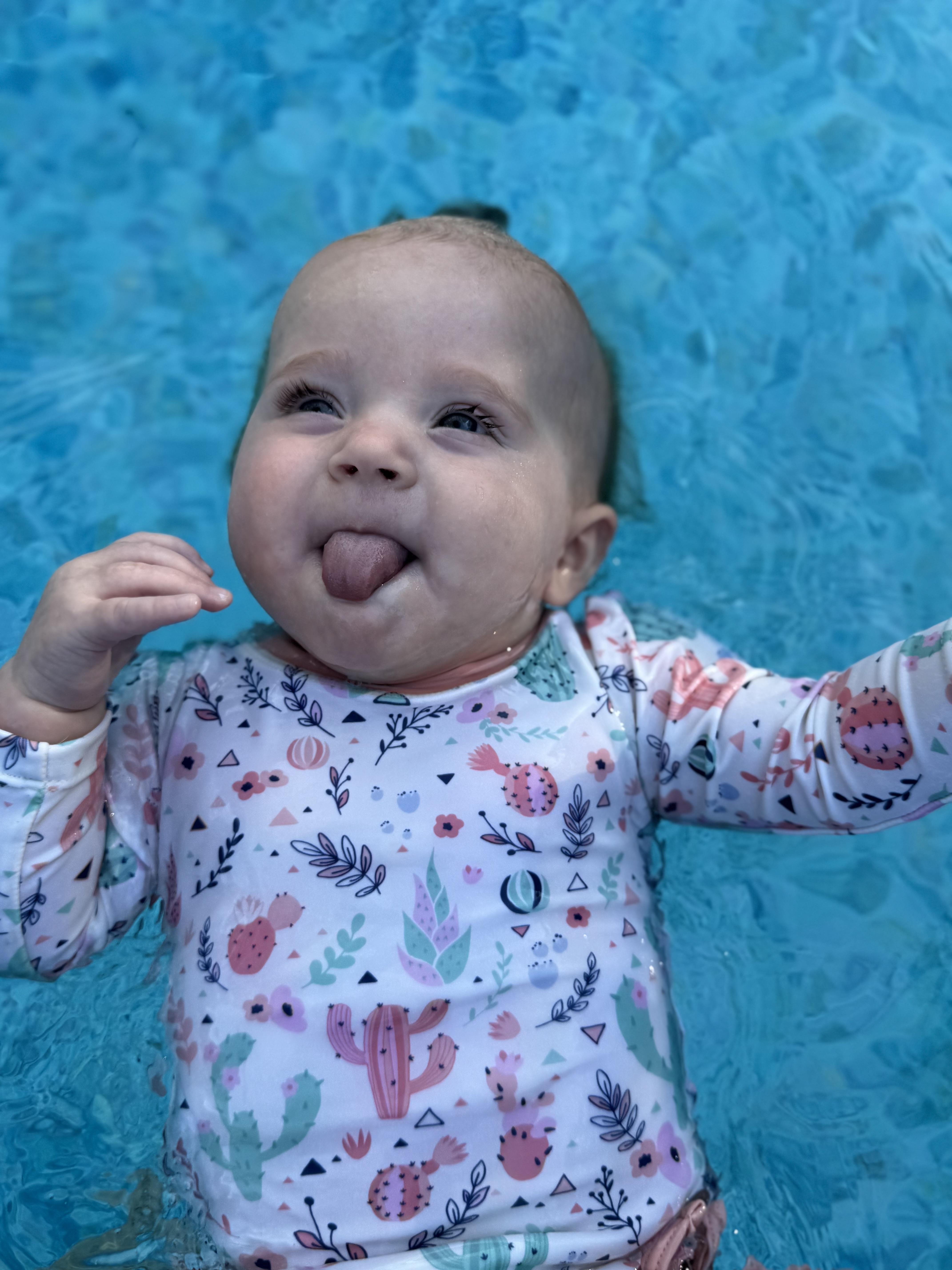What to expect during lesson
Week 1.
I will focus on building trust with your little one and getting them comfortable in the water. Your child will likely cry, which is completely normal. This is a new environment for them, and they do not know me. Children also can pick up on their parents' emotions, so if you are fearful or stressed, they will likely be too.
During this we will focus on breath control. By the end of the week the bigger kids should have a short swim built and be able to grab the steps or wall from various of angles. For babies that are learning to float we will work on the floating posture.
Week 2-3.
Your little one should be able to swim! We will continue to work on a good swimming technique, learn how to roll back into the float position, and begin learning to float. Most little ones are comfortable with the lessons at this point, and the crying usually subsides, and they get excited about coming to lessons.
Week 4-5.
Once your little one can float, we will start to work on a flip over, to help them get the full Swim-Float-Swim sequence down. For the babies that are only learning to float, this week we will be working on a roll back so they can flip on to their back to hold the floating position for if they were to fall into the pool.
Week 6.
This is the week that we have all of our survival swim skills! We will do clothing test to make sure your little one can use their skills to prepare for the real-world, just in case they were to accidently fall into the pool fully clothed. We will test in summer clothes and winter clothes. Most kids graduate in 6 weeks, but some can take up to 8 weeks.

Reach out today
We would love to hear from you.